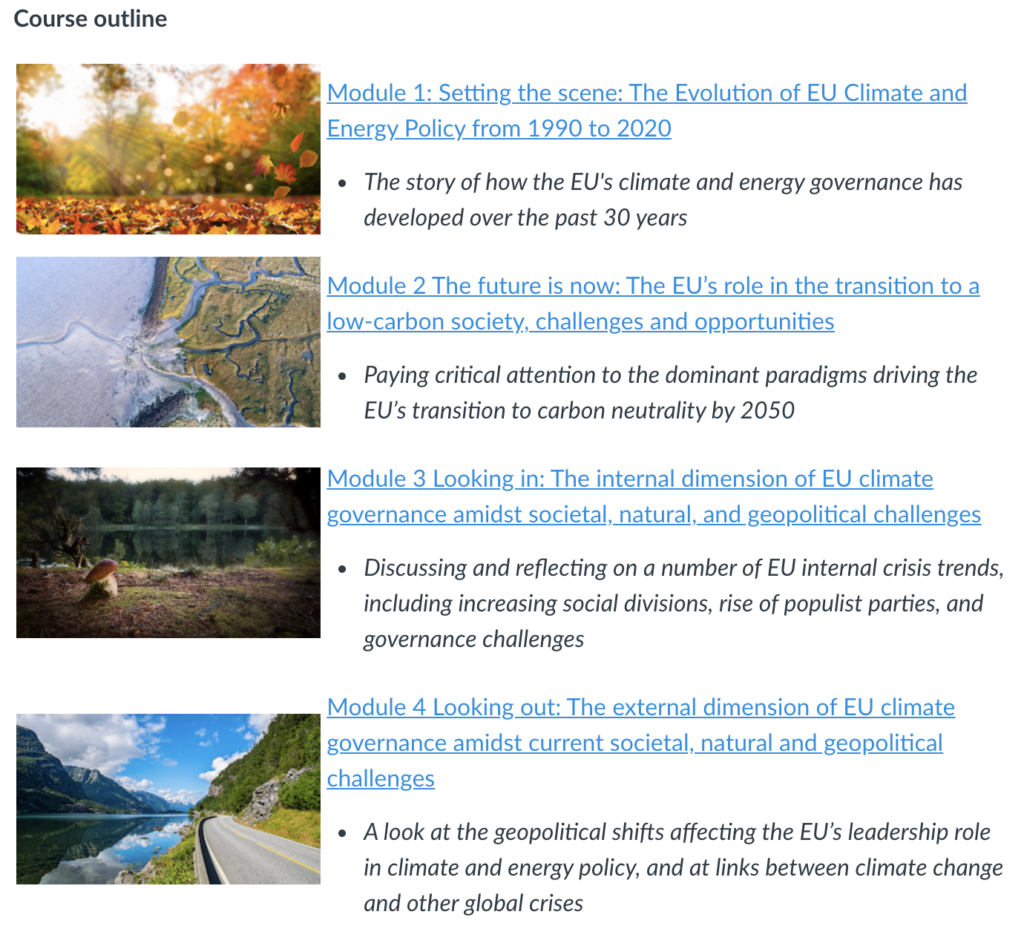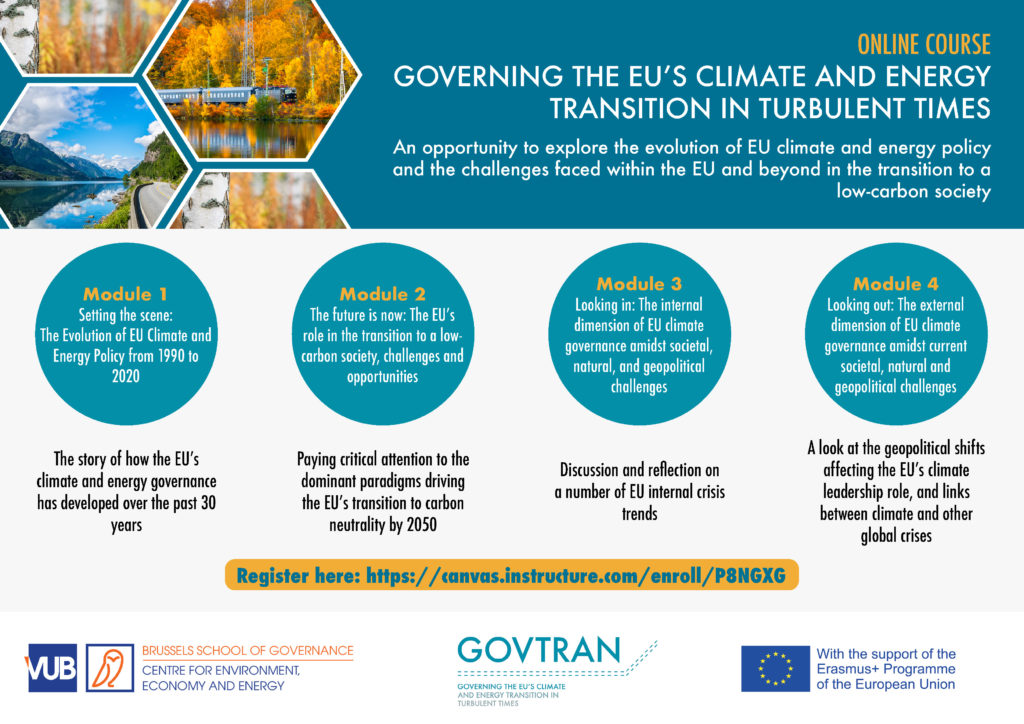A free online course on Governing the EU’s Climate and Energy Transition to a Low-carbon Society in Turbulent Times
The new course, developed by Ólöf Söebech, Laura Iozzelli and Jana Gheuens, building on work created within the network, is open to anyone wishing to further develop their knowledge of EU climate and energy policy. In addition to being freely available, it is self-paced – meaning you can start it when you want and go at your own speed. Furthermore, while we recommend starting at the beginning and going through the material in the order provided, you can choose to complete the modules in the way you see fit. You are in charge of your learning experience in this course, and we provide you with (in addition to the sterling educational material) the framework, structure, guidelines, and support tools to guide your journey. While the course is open to everyone, it is particularly well suited for people with some prior knowledge of EU institutions and policy making and with a strong interest in European climate governance and policy.
The course addresses some fundamental questions regarding European climate and energy policy: How did we get here? Where are we heading? What are the ambitions? What are the policy (and other) tools being suggested and implemented to reach those ambitions? What are some of the key challenges? How is climate governance impacted by other urgent crises?
Divided into four modules, the course looks at the historical evolution of EU climate and energy policy from 1990 to 2020 (first module), takes stock of where the EU stands today by exploring different pathways suggested to reach a fair, low-carbon society (second module) and reflects on some of the major social, natural and geopolitical challenges the EU faces in this transition, both from an internal (third module) and an external (fourth module) EU perspective.

In short, this course provides a great opportunity to obtain a comprehensive overview of EU climate and energy policy through a better understanding of its evolution and the challenges it faces. Students will be able to identify existing and potential policies and measures aimed at decarbonisation and meeting climate ambitions, to critically assess the short-term and long-term consequences of different governance methods, as well as to develop analytical skills in terms of connecting EU climate and energy policy to broader societal challenges.
Click here to register to the course
For any questions, contact us
Back to all publications

